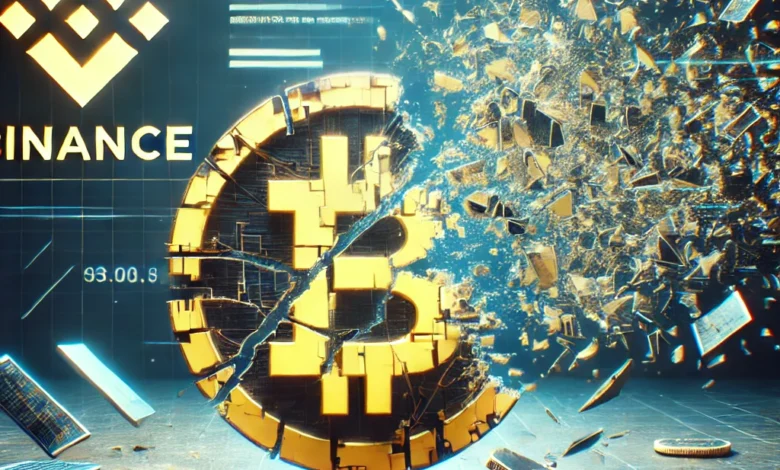Binance Ends Support for Bitcoin NFTs: What It Means for the Market

Binance, one of the world’s leading cryptocurrency exchanges, recently announced it will be ending support for Bitcoin non-fungible tokens (NFTs). This decision has sent ripples through the crypto community, raising questions about the future of NFTs on major exchanges and the broader implications for the NFT market. This article delves into the reasons behind Binance’s decision, its potential impact on the NFT ecosystem, and what this means for investors and creators alike.
The Rise of NFTs
NFTs have revolutionized the digital landscape by allowing ownership of unique digital assets. These tokens, which can represent anything from art to music to virtual real estate, have gained immense popularity over the past few years. Bitcoin, primarily known for its role as digital gold, has also seen a growing interest in NFTs, although it has not been the primary blockchain for these assets.
Binance’s Role in the NFT Market
Binance has played a significant role in the adoption and trading of cryptocurrencies. In 2021, it launched Binance NFT, a platform dedicated to NFT trading and creation. This platform provided users with the ability to buy, sell, and mint NFTs, leveraging Binance’s robust infrastructure and user base.
The Decision to End Bitcoin NFT Support
On July 12, 2024, Binance announced that it would no longer support Bitcoin NFTs on its platform. The announcement was met with mixed reactions from the crypto community. While some saw it as a necessary move to streamline operations and focus on more prominent aspects of the crypto ecosystem, others viewed it as a setback for Bitcoin NFTs.
Reasons Behind the Decision
- Low Adoption and Volume: Bitcoin NFTs have not gained the same traction as NFTs on Ethereum or other blockchains like Solana and Binance Smart Chain. The lower trading volumes and adoption rates may have made it economically unfeasible for Binance to continue supporting them.
- Technical Challenges: Supporting NFTs on the Bitcoin network poses unique technical challenges. Unlike Ethereum, which has a robust ecosystem for smart contracts and NFTs, Bitcoin’s architecture is primarily designed for peer-to-peer transactions. This makes integrating and managing NFTs more complex and resource-intensive.
- Regulatory Considerations: The regulatory landscape for cryptocurrencies and NFTs is continually evolving. Binance may have decided to end support for Bitcoin NFTs to preempt potential regulatory issues and streamline compliance efforts across its platform.
- Strategic Focus: Binance might be refocusing its resources on more promising areas within the crypto and NFT space. By concentrating on blockchains that have a higher adoption rate and more robust ecosystems for NFTs, Binance can optimize its offerings and provide better services to its users.
Impact on the Market
The discontinuation of Bitcoin NFT support on Binance will have several implications for the market:
- Shift to Other Platforms: Creators and traders of Bitcoin NFTs will likely migrate to other platforms that continue to support these assets. This shift could lead to increased activity on smaller or niche platforms that cater specifically to Bitcoin NFTs.
- Impact on Bitcoin NFT Projects: Projects that are heavily reliant on Binance for visibility and liquidity may face challenges. These projects will need to adapt quickly, either by transitioning to other blockchains or finding alternative ways to engage with their communities.
- Market Consolidation: The move might lead to further consolidation in the NFT market, with Ethereum, Solana, and other blockchains strengthening their positions as the leading platforms for NFTs. This consolidation could streamline user experiences and reduce fragmentation in the market.
Future of NFTs on Binance
While Binance is ending support for Bitcoin NFTs, it remains committed to the broader NFT market. The exchange has reiterated its focus on supporting NFTs on its native Binance Smart Chain and other popular blockchains. This strategic pivot allows Binance to concentrate on areas with higher user engagement and more robust ecosystems.
Enhancements and New Features
Binance has hinted at upcoming enhancements to its NFT platform, including improved user interfaces, better security measures, and new tools for creators. By doubling down on these improvements, Binance aims to solidify its position as a leading platform for NFT trading and creation.
What This Means for Investors and Creators
For investors and creators, Binance’s decision underscores the importance of diversification and adaptability. Those involved in the NFT space should consider the following strategies:
- Diversify Holdings: Investors should diversify their NFT holdings across multiple blockchains to mitigate risks associated with platform-specific changes.
- Stay Informed: Keeping abreast of regulatory developments and platform policies is crucial for making informed decisions in the rapidly evolving crypto and NFT markets.
- Explore New Opportunities: The end of Bitcoin NFT support on Binance might open up new opportunities on other platforms. Creators should explore these platforms and consider cross-platform strategies to maximize their reach and impact.
- Binance’s decision to end support for Bitcoin NFTs marks a significant shift in the NFT landscape. While it poses challenges for Bitcoin NFT projects, it also presents opportunities for other platforms to capture a niche market. For the broader NFT ecosystem, this move highlights the need for continuous adaptation and strategic focus. As Binance continues to evolve its offerings, the NFT community will be watching closely to see how these changes shape the future of digital assets.





